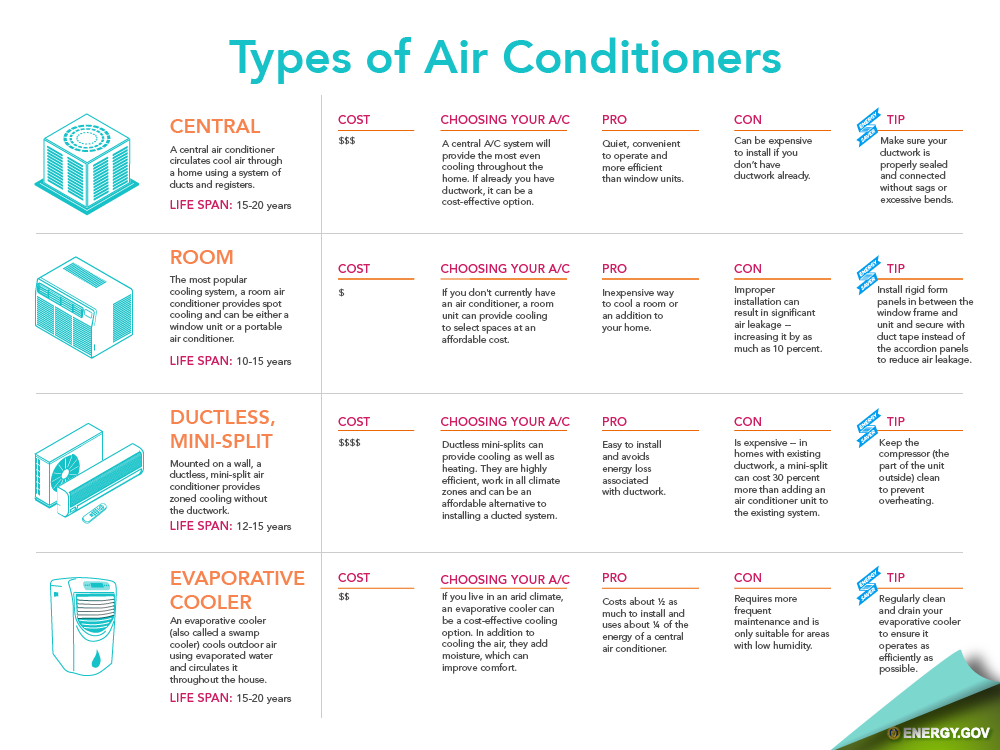5 Signs That It Is The Right Moment To Update Your Home Cooling And Heating System
5 Signs That It Is The Right Moment To Update Your Home Cooling And Heating System
Blog Article
Write-Up Created By-Lyng Walls
Is your home heating and air system on its last legs? Like a car that's seen far better days, your heating and cooling system can start showing indications of damage. Yet exactly how do you know when it's time to bid farewell to your old faithful and welcome in a new, more efficient model?
Well, my friend, if you've been seeing your system regularly running, odd sounds wafting through the air, or an unexpected increase in your power expenses, then it might be time to take into consideration a replacement. But that's not all-- there are a few other indicators that you will not wish to miss.
So, distort up and prepare to uncover the signs that could be a game-changer for your home comfort.
Continuously Running or Never Ever Biking off
If your home heating and air system is frequently running or never cycling off, there might be a breakdown that calls for instant interest. This concern can show a couple of different problems with your system.
One opportunity is that the thermostat isn't working correctly, creating it to continuously signal for the system to run.
Another potential reason could be a clogged air filter, preventing proper air movement and triggering the system to work more difficult and longer.
In addition, a malfunctioning follower or blower electric motor might additionally be the offender, maybe incapable to efficiently circulate air throughout your home.
No matter the exact reason, it is very important to address this issue quickly to prevent more damages to your system and to guarantee ideal power efficiency.
Strange Sounds or Uncommon Smells
You may observe odd sounds or unusual smells originating from your home heating and air system. These indications can suggest that it's time to change your system.
Below are some feasible factors for these weird sounds and scents:
- Rattling or banging sounds: This can suggest loosened or broken parts within the system, such as a motor or fan. It is necessary to resolve this problem promptly to stay clear of further damages.
- Stuffy or moldy scents: This can show the existence of mold and mildew or mold within the system, which can influence your interior air top quality. relevant web-site to address this concern as it can lead to respiratory system troubles.
- Burning or metal smells: This could be an indication of getting too hot or electrical concerns. It's vital to take immediate activity to avoid any type of prospective fire risks.
If you observe any one of these indications, it's recommended to seek advice from a professional HVAC professional to analyze your system and figure out if substitute is necessary.
Irregular or Insufficient Heating/Cooling
Experiencing irregular or insufficient heating & cooling in your house can be an irritating and awkward situation. It is necessary to have a reliable HVAC system that can maintain your home at a comfortable temperature level year-round.
If you locate that your home isn't heating or cooling equally, with some rooms being as well hot while others are too cold, it might be time to replace your home heating and air system. Insufficient heating or air conditioning can be caused by a selection of concerns, such as a malfunctioning thermostat, clogged up air filters, or a damaged cooling and heating unit.
Constant Repairs and Breakdowns
When your heating & cooling system calls for frequent repair work and experiences failures, it's an indicator that it may be time to think about replacing it. Constantly managing repairs can be irritating and expensive, and it's important to acknowledge when your system is no longer trustworthy.
Below are three reasons regular fixings and malfunctions must prompt you to think about replacing your home heating and air system:
- ** High repair service expenses **: Constant repair services can rapidly accumulate, and you might find yourself investing even more cash on repairing your system than it's worth.
- ** Reduced power performance **: Older systems tend to come to be much less efficient over time, bring about higher power bills and wasted energy.
- ** Air conditioning evaluation near me **: If your system is constantly breaking down, you might experience temperature variations and pain in your house.
Considering these factors, it deserves exploring the choice of changing your system to save cash, improve power efficiency, and ensure consistent convenience in your house.
Considerable Boost in Power Bills
If your month-to-month energy expenses have been continuously raising, it may be a clear indication that it's time to think about replacing your home heating and air system. As your HVAC system ages, its effectiveness lowers, causing it to work more challenging and take in more power. This can result in a significant rise in your power bills.
Old and outdated systems might have damaged elements, such as electric motors, followers, or compressors, that require even more energy to function correctly. Furthermore, leaking ductwork or bad insulation can result in power loss, requiring your system to function also more difficult to preserve a comfy temperature level.
Final thought
If you're experiencing any one of these indications with your home heating and air system, it's time to consider a replacement. Disregarding these concerns can lead to pain, greater power expenses, and constant fixings.
In https://www.seacoastonline.com/story/news/local/2022/04/30/pot-shop-tree-tips-kittery-maine-receives-planning-board-approval/7451500001/ , did you know that home heating and cooling down make up about 48% of the energy usage in a common U.S. home? By updating to a much more effective system, you can not just enhance your comfort but also save on energy prices.
Don't wait up until it's far too late, take action now and take pleasure in a much more reputable and affordable home climate.
